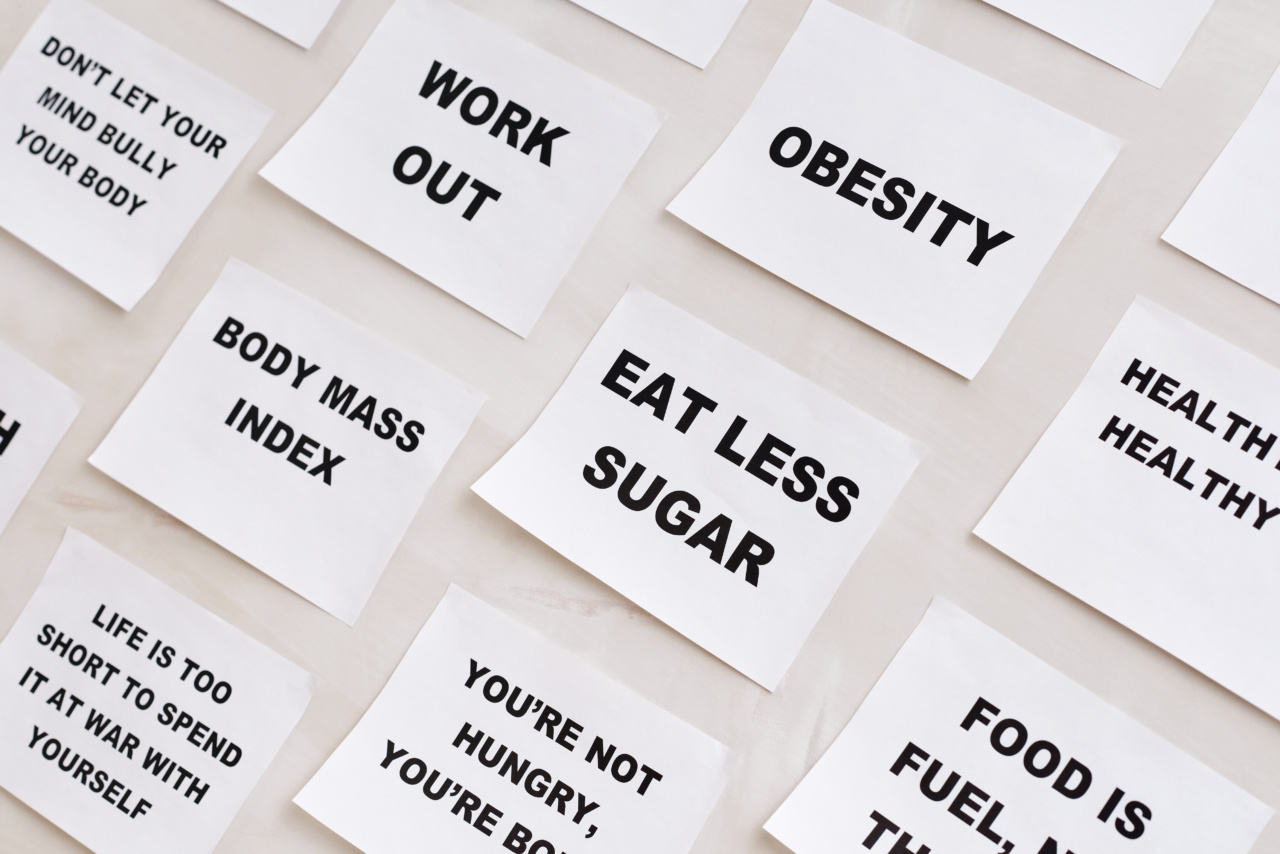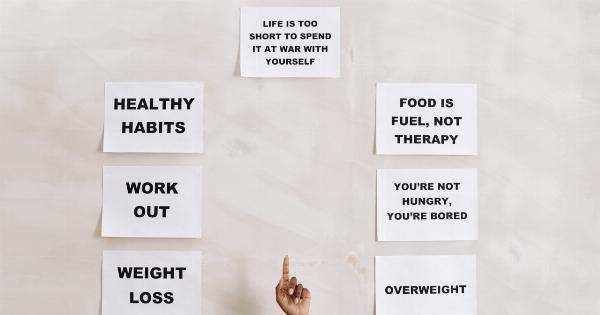When it comes to achieving weight loss success, many people mistakenly focus solely on exercise and overlook the crucial role that eating habits play in their journey.
The truth is, what we eat plays a significant role in determining our body weight and overall health.
1. Mindless Eating
Mindless eating refers to consuming food without paying attention to what and how much we are eating. This habit often leads to overeating and unnecessary weight gain.
Factors such as eating in front of the TV, eating while doing other activities, or eating straight from the package contribute to mindless eating.
To overcome mindless eating, practice these tips:.
- Eat at regular mealtimes and in designated eating areas.
- Avoid distractions while eating, such as watching TV or working on your computer.
- Use smaller plates and bowls to help control portion sizes.
- Take smaller bites and chew your food thoroughly.
- Engage in mindful eating by savoring each bite and paying attention to flavors and textures.
2. Emotional Eating
Many people turn to food to cope with their emotions, whether it’s stress, sadness, boredom, or even happiness.
Emotional eating can sabotage weight loss efforts because it often involves consuming high-calorie, unhealthy foods in large quantities. This habit leads to an unhealthy relationship with food and can result in weight gain or difficulty losing weight.
To break free from emotional eating, try the following strategies:.
- Identify your triggers and find alternative ways to cope with your emotions, such as exercising, practicing relaxation techniques, or talking to a trusted friend.
- Keep a food diary to track your emotions and eating patterns. This will help you identify patterns and make healthier choices.
- Stock your kitchen with nutritious, satisfying foods that you enjoy. This will reduce the temptation to reach for unhealthy options when emotional cravings strike.
- Seek support if needed. Consider joining a support group or working with a therapist who specializes in emotional eating.
3. Unbalanced or Restrictive Diets
Following unbalanced or restrictive diets may seem like a shortcut to weight loss success, but they often do more harm than good. These types of diets can result in nutrient deficiencies, muscle loss, low energy levels, and a slowed metabolism.
Additionally, they are not sustainable in the long run and can lead to weight regain once the diet is stopped.
Instead of resorting to extreme diets, focus on adopting a balanced and sustainable eating plan:.
- Include a variety of whole foods, such as fruits, vegetables, lean proteins, whole grains, and healthy fats.
- Avoid labeling foods as “good” or “bad” and practice moderation instead.
- Listen to your body’s hunger and fullness cues. Eat when you’re hungry and stop when you’re satisfied.
- Seek guidance from a registered dietitian or nutritionist who can help you create a personalized meal plan that aligns with your goals and lifestyle.
By addressing and overcoming these eating habits, you can significantly enhance your weight loss journey and increase your chances of long-term success.
Remember, sustainable weight loss is achieved through a combination of healthy eating, regular physical activity, and a positive mindset.
























